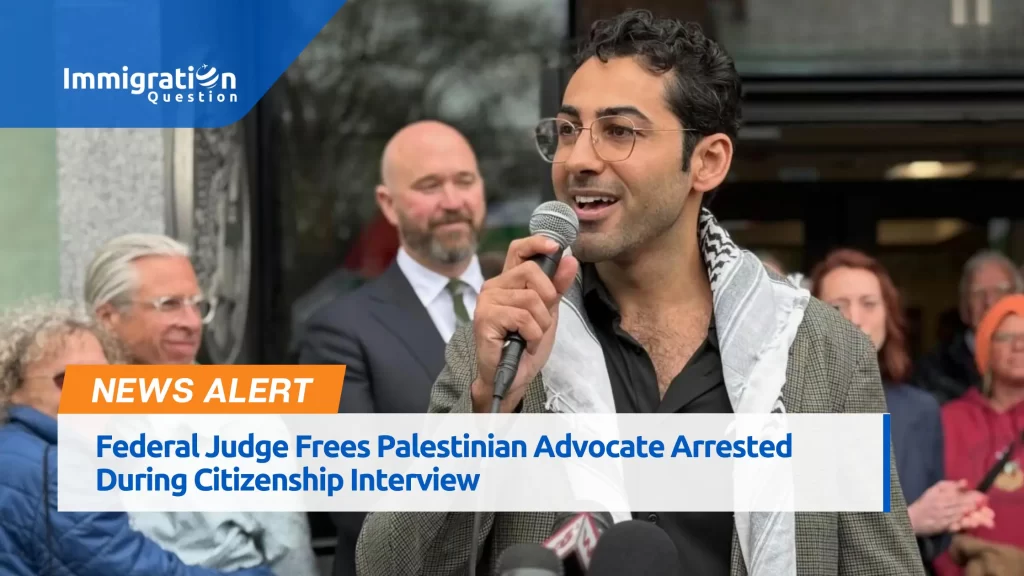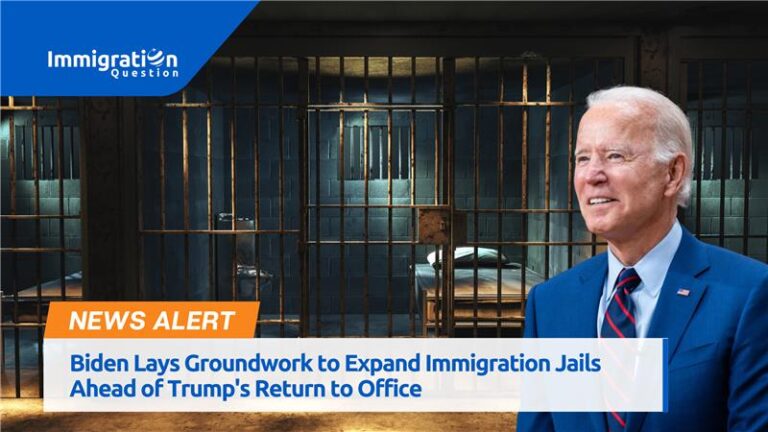A federal judge has released Columbia student Mohsen Mahdawi from ICE custody, citing concerns that his detention was retaliation for political speech. The case, viewed as part of a broader crackdown on pro-Palestinian voices, has sparked legal and public debate over immigrant rights, free speech, and government overreach.
Federal Judge Orders Release of Palestinian Rights Advocate
A U.S. district judge has ordered the release of Mohsen Mahdawi, a 34-year-old Columbia University student and permanent resident, who was arrested earlier this month during his citizenship interview. His detention sparked widespread outcry among civil rights advocates who argue that the arrest was part of a broader crackdown on pro-Palestinian voices in the U.S.
His arrest by Immigration and Customs Enforcement (ICE) agents during a routine naturalization interview drew national attention and intensified scrutiny of how the Trump administration is treating legal residents engaged in political activism.
A Judge Raises Red Flags
During a packed court hearing, U.S. District Judge Geoffrey W. Crawford raised concerns that Mahdawi’s detention appeared retaliatory. He emphasized that the case unfolded in a political environment where lawful residents were being targeted not for crimes but for their political speech—a climate he likened to the McCarthy era and post-World War I Red Scare.
The judge concluded that no evidence suggested Mahdawi posed a flight risk or danger to society. He referenced over 125 letters from professors, neighbors, and many Jewish friends who attested to Mahdawi’s peaceful character and dedication to nonviolence.
Allegations and Legal Backlash
Mahdawi’s legal team argues that his arrest was politically motivated. According to them, ICE handed Mahdawi a notice from the Department of Homeland Security alleging he had led pro-Palestinian protests and engaged in “anti-Semitic conduct.” A separate memo by Secretary of State Marco Rubio accused him of using “threatening rhetoric,” though his lawyers deny these claims and stress that Mahdawi has condemned antisemitism publicly and consistently.
After being taken into custody on April 14, Mahdawi narrowly avoided being flown to a detention center in Louisiana, thanks to a last-minute court order from a Vermont judge. He was held for over two weeks in a facility north of Burlington while his legal team filed emergency motions to prevent his deportation.
Activism and Community Engagement
Though Mahdawi had stepped back from activism earlier this year, he remained deeply involved in dialogue and peace-building efforts. He regularly met with Israeli students at Columbia to discuss nonviolent solutions to the Israeli-Palestinian conflict. His supporters highlight his efforts to bridge divides, noting a past incident where he publicly denounced antisemitic remarks at a protest.
Mahdawi, born in a West Bank refugee camp, moved to the U.S. in 2014 and obtained his green card the following year. He was set to graduate from Columbia next month with a degree in philosophy. He married a medical student briefly, but he later embraced Buddhism and built a quiet life in Vermont before becoming active in campus protests.
Looking Ahead
Prosecutors have signaled their intent to appeal the judge’s ruling. Meanwhile, Mahdawi’s immigration case and federal habeas corpus petition remain active. Legal experts expect this case to become a key flashpoint in the ongoing national debate over free speech, immigration, and political dissent.
To stay updated and informed, watch our news section or drop your immigration questions on immigrationquestion.com and get responses from professional attorneys.










